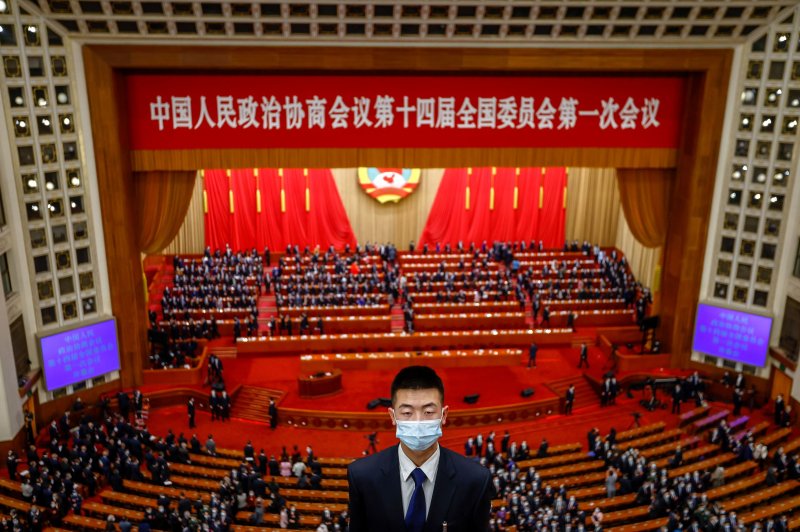Harlan Ullman

The record of American interventions into Vietnam in 1964, Afghanistan in 2001 and Iraq in 2003 is one of failure.
Given that many in the U.S. Congress regard China as an "existential threat," is the United States at risk of making similar errors and mistakes in judgment extending across several administrations that will end in future failure? Bluntly put, will failure become endemic to U.S. China policy?
The major reasons for these three failures were remarkably consistent. The United States was flagrantly deficient in basic knowledge and understanding about each country. And, another culprit was at work -- groupthink that excused successive governments from challenging basic assumptions before acting.
The investigation of the August 2021 evacuation from Kabul airport is a stark reminder of how four successive administrations caused the Afghan debacle. U.S. President Joe Biden was rightfully criticized for mishandling the withdrawal. But culpability and responsibility must also heavily rest on the accumulated actions and policies of Presidents George W. Bush, Barack Obama and Donald Trump that, over 20 years, would return Afghanistan to medieval Taliban rule.
In Afghanistan, the kill or capture mission failed when U.S. operational incompetence allowed Osama bin Laden to escape into Pakistan in December 2001. The mission then metastasized into nation building, overlaying a Western-style democracy and constitution onto a tribal society to prevent Afghanistan from becoming a terrorist haven again.
The secret 2020 Trump negotiations with the Taliban, deliberately excluding the Afghan government, committed the United States to withdrawal and disaster.
In Vietnam, the 1964 Tonkin Gulf Resolution was provoked by a second North Vietnamese PT boat attack that never occurred. The Domino Theory to stop the global spread of monolithic godless communism in Vietnam rationalized intervention. And the Johnson administration's groupthink wrongly concluded that gradual escalation and U.S. military superiority would force Hanoi to surrender.
Groupthink was certain that Iraq possessed weapons of mass destruction in 2003. And George W. Bush's invention of an "axis of evil" consisting of traditional enemies Iran and Iraq and North Korea was, frankly, absurd. Few challenged these assessments. Are we repeating similar errors with China?
The China policies of George H.W. Bush and the Clinton administrations assumed that a more economically viable China would produce a more open society. That, too, did not happen. As China's economy grew, so did its military power.
In 2011, this combination drove the Obama administration to announce a "strategic pivot" to Asia. The 2015 release of the Obama National Security and Defense Strategies, largely retained by Trump and Biden, reinforced this pivot. The NSS's aim was to "contain, deter and if war arose, defeat" five potential adversaries topped by China and Russia. Had Chinese and Russian strategy held the same aims against the United States, what would the reactions have been in Washington?
The Trump administration exacerbated relations by imposing tariffs on China to correct the $400 billion annual trade imbalance while ignoring China's favorable $2 trillion-$3 trillion investment balance in U.S. equities, bonds and real estate. Under Biden, the rhetoric has grown harsher, reflected in the president declaring the battle between democracy and autocracy as the major struggle of our time.
China may be a clear and present danger. Stealing intellectual property, intimidating neighbors and promising to seize Taiwan are hostile acts. But are China's threats well enough defined to serve as the basis for an effective strategy?
Moreover, if the United States is committed to a permanent strategic competition with China, what is the best possible outcome to be expected? What are the metrics for assessing success and failure? And do other options exist? The United States frets that China will win the artificial intelligence race. What does that mean? Numerically, China may have the largest navy in the world. Would anyone trade it for the U.S. Navy?
Will China invade Taiwan? Is that possible or likely, given the level of military capability required to launch a Normandy-level invasion of Taiwan? Or is this invasion threat equivalent to nonexistent Iraqi WMD and invented North Vietnamese PT-boat attacks? Does the U.S. government know?
Since 2015, one consistent U.S. strategic aim has been to deter China. But from what is China (or Russia) being deterred? And if China is not deterred, what then? If the actual threats China poses cannot be well defined and deterrence is not working, is it time to reconsider strategy?
Given this historical record, will a deeply politically divided United States be able to undertake a thorough and timely review of its China policies or on any other issue? The answer is likely to be no.
Harlan Ullman is senior adviser at Washington's Atlantic Council, the prime author of "shock and awe" and author of "The Fifth Horseman and the New MAD: How Massive Attacks of Disruption Became the Looming Existential Danger to a Divided Nation and the World at Large." Follow him @harlankullman.
The views and opinions expressed in this commentary are solely those of the author.
No comments:
Post a Comment